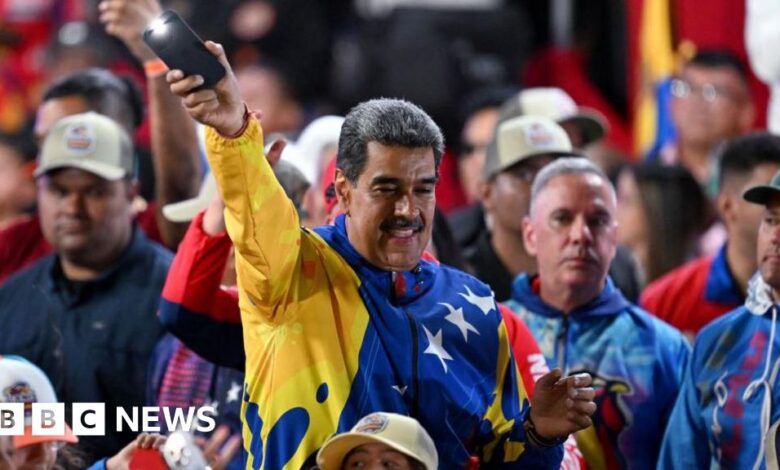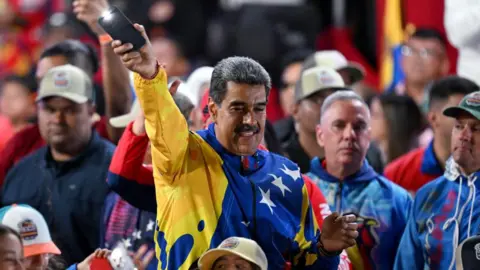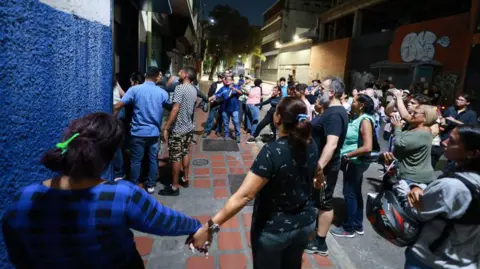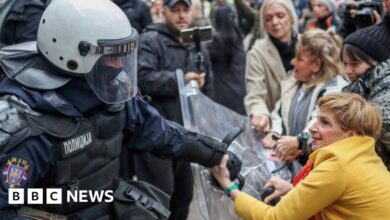Maduro claims victory in disputed vote

 beautiful pictures
beautiful picturesPresident Nicolás Maduro has won Venezuela’s presidential election, according to partial results released by the electoral council.
The head of the National Electoral Council (CNE), Elvis Amoroso, a close ally of Mr Maduro, said with 80% of the votes counted, President Maduro had won 51.20% of the vote, compared to 44.02% for his main rival.
Venezuela’s opposition has alleged widespread fraud in the vote count and vowed to contest the results.
The party has united behind candidate Edmundo González to oust Mr Maduro after 11 years in power.
Speaking to cheering supporters in Caracas, Mr Maduro said his re-election was a “victory for peace and stability”.
He praised Venezuela’s electoral system, describing it as transparent, and mocked the opposition, who he said “screamed about fraud” in every election.
US Secretary of State Antony Blinken expressed skepticism after the results were announced. The US is “very concerned that the results announced do not reflect the will or the vote of the Venezuelan people”.
Meanwhile, Cuba, a close ally of Mr Maduro’s government, declared that “the people have spoken and the Revolution has triumphed”.
The opposition deployed thousands of witnesses to polling stations across the country to be able to declare their votes.
However, a spokesman for the coalition led by Mr González said their witnesses were “forced to leave” at many polling stations.
The opposition also called on supporters to stand guard at polling centres to verify the counting process in the “crucial hours” after closing, amid widespread concerns that the government would try to steal votes.
 Getty
GettyOpinion polls show Mr González with a large lead over Mr Maduro.
Many voters said they wanted change after 25 years of the socialist PSUV party in power — first under the leadership of the late President Hugo Chávez, and after his death from cancer in 2013, under Nicolás Maduro.
Under their leadership, the PSUV gained control not only of the executive and legislative branches, but also much of the judiciary.
The most recent election in 2018 was widely criticised as neither free nor fair and there were concerns ahead of this election that the vote could also be marred by irregularities.
These fears were further compounded when President Maduro declared he would win “at all costs”.
The opposition, however, struck a positive note heading into the election, arguing that if their supporters turned out in large numbers, it would be difficult for the government to “steal the election”.
Voting in Venezuela is electronic. Voters press a button assigned to their preferred candidate on a voting machine.
Electronic results are sent to CNE headquarters, but the machine also prints out a paper receipt that is then dropped into the ballot box.
By law, parties are allowed to send witnesses to count votes at each polling station, but many parties have failed to do so.
The opposition said it had access to less than a third of the printed receipts.
Their plan is to track these figures to see if they match the results published by the CNE.





